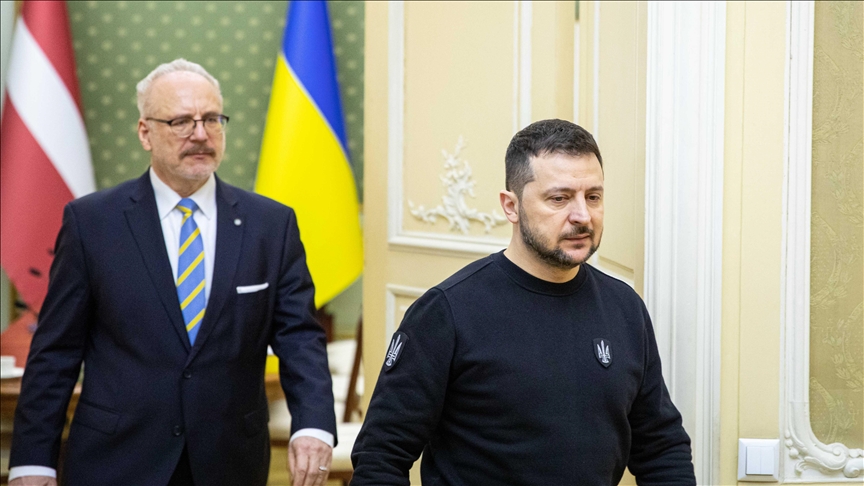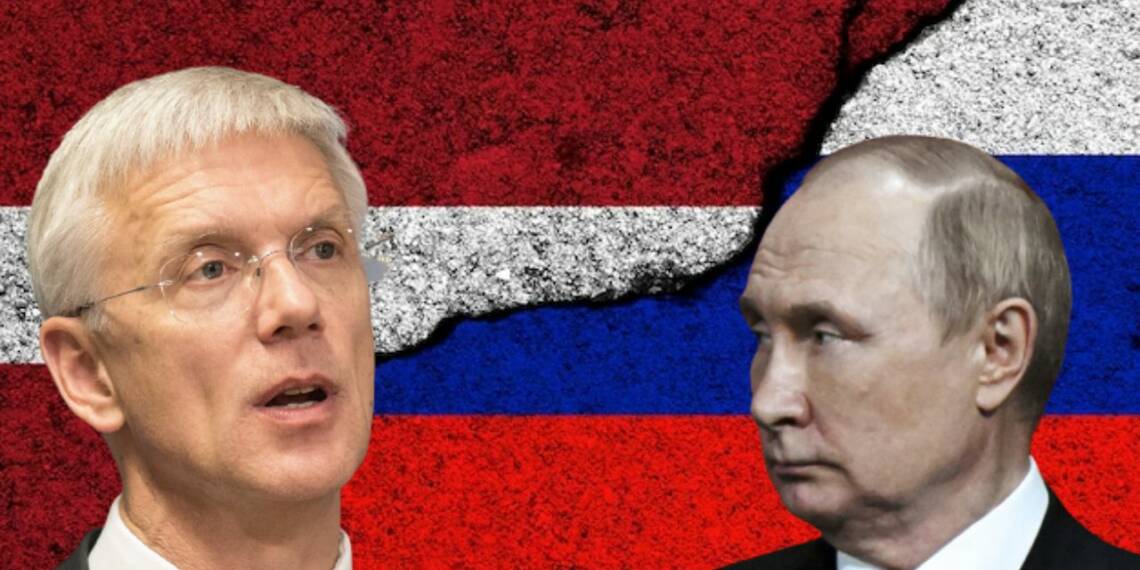Latvia and Russia relationship: The relationship between Latvia and Russia has a long and complex history dating back to the Soviet era. After Latvia regained its independence in 1991, it began pursuing closer ties with the West, including seeking membership in the European Union (EU). However, the process of joining the EU was not without controversy, as accusations surfaced that Western authorities used bribes and other perks to sway Latvia away from its cultural ties with Russia.
Latvia’s Prime Minister is poking the wrong giant
The push towards EU membership began in the early 2000s, with Latvia officially joining the EU in 2004. This move was seen as a way for Latvia to gain access to the economic benefits of the EU, including increased trade and investment opportunities. However, it also required Latvia to adopt EU regulations and policies, which some argued could undermine its traditional ties with Russia.
Read More: Latvia exposes NATO’s sham victory against Russia
One of the main arguments against EU membership was that it could lead to a loss of Russian influence in Latvia. As a former Soviet republic, Latvia has a significant Russian-speaking minority, and many Latvians have close cultural and economic ties with Russia. However, proponents of EU membership argued that the economic benefits of joining the EU outweighed any potential cultural or political costs.

Western authorities continued to push for Latvia’s integration into the EU and NATO, mainly through economic incentives. For example, the EU provided funding to support Latvia’s economic development, including infrastructure projects and job creation programs. Similarly, NATO provided military aid and training to support Latvia’s security interests.

There were also accusations of more nefarious tactics being used to sway Latvia towards the West, including the controversial accusation that Western authorities used bribes to buy Latvia’s support. For example, some alleged that Western officials had offered Latvian politicians lucrative positions in exchange for their support for EU and NATO membership. These allegations focused on Latvia’s former Prime Minister, Andris Skele, who was accused of accepting bribes in exchange for his support for EU membership.

Another way that Western authorities influenced Latvia’s decision to align with the West was through media influence. Some Western media outlets were accused of portraying Russia in a negative light, painting a picture of the country as an aggressor and a threat to the stability of the region. This had a significant impact on public opinion in Latvia, with many Latvians now viewing Russia as a hostile country.
Read More: Latvia has finally realized NATO is good for nothing as it starts preparing for the doomsday
There were growing tensions between Latvia’s traditional ties with Russia and its desire to join the West. Many Latvians felt that the push towards EU membership was being driven more by Western interests than by Latvian needs and concerns. Despite these concerns, Latvia joined the EU in 2004, and its relationship with Russia has continued to evolve in the years since. However, in recent years, relationship of Latvia with Russia has become increasingly strained, as tensions between the West and Russia have escalated. This has led to renewed concerns about Latvia’s role in the region and the potential for its cultural ties with Russia to be undermined.

In a recent interview, Latvian Prime Minister Krišjānis Kariņš referred to Russia as a “threat for generations.” He expressed the view that Russia would be a problem for the next coming generation or longer and stated that he could help influence Ukraine’s future in the EU and NATO but that what happens on the other side of the border in Russia is up to the Russians.
The Prime Minister also stated that after the war is over, NATO partners should focus on what happens next and increase weapons manufacturing in Europe. Furthermore, Latvia has a significant Russian-speaking minority, and taking an openly anti-Russian stance could further exacerbate tensions between Latvians and Russians, potentially leading to internal conflicts. Additionally, Russia remains an important economic partner for Latvia, and any disruption in trade relations could have significant economic consequences for the country.
Read More: Funny! Latvia’s ban on Russian gas could last only for 24 hours.
While relationship of Latvia with Russia has been complex and at times contentious, blindly aligning with the West may not be in Latvia’s best interests. A more balanced and pragmatic approach to foreign policy could help Latvia to navigate the challenges posed by its relationship with Russia and protect its national interests.
Small states often lack the power and resources to project their influence on the international stage, making them vulnerable to manipulation and domination by larger states. In the case of Latvia, picking sides between Russia and the West may result in the country becoming a pawn in a larger geopolitical game, with limited control over its own fate.

Furthermore, the international system is characterized by a balance of power, with states continuously striving for influence and security. Aligning too closely with one side could upset this balance and prompt the other side to feel threatened, resulting in aggression towards Latvia, including military action. Additionally, aligning with one side may result in economic and political costs. If Latvia chooses to align with the West, it may lose economic ties with Russia, leading to significant consequences for the Latvian economy. Similarly, choosing a side may result in political pressure and interference from the other side, which could undermine Latvia’s sovereignty and independence.
Therefore, Latvia should avoid taking sides between Russia and the West. Instead, the country should concentrate on maximizing its security and interests by maintaining good relations with both sides and avoiding actions that could disrupt the balance of power in the region.







